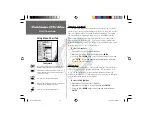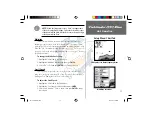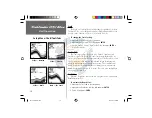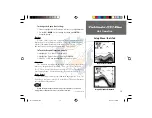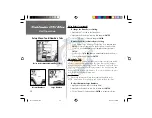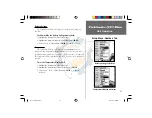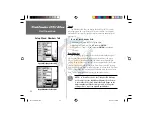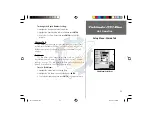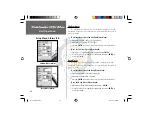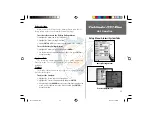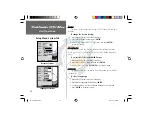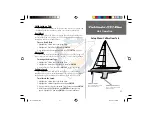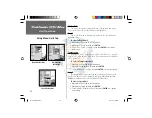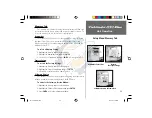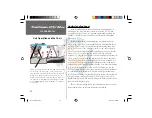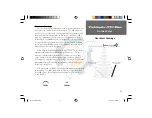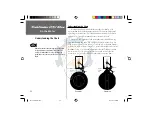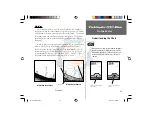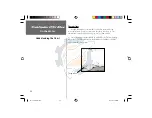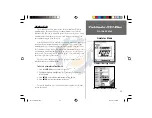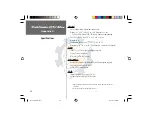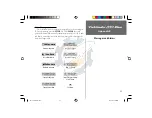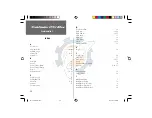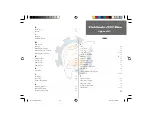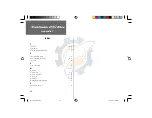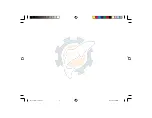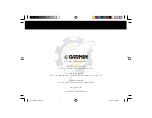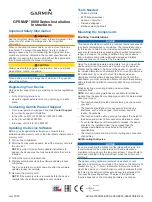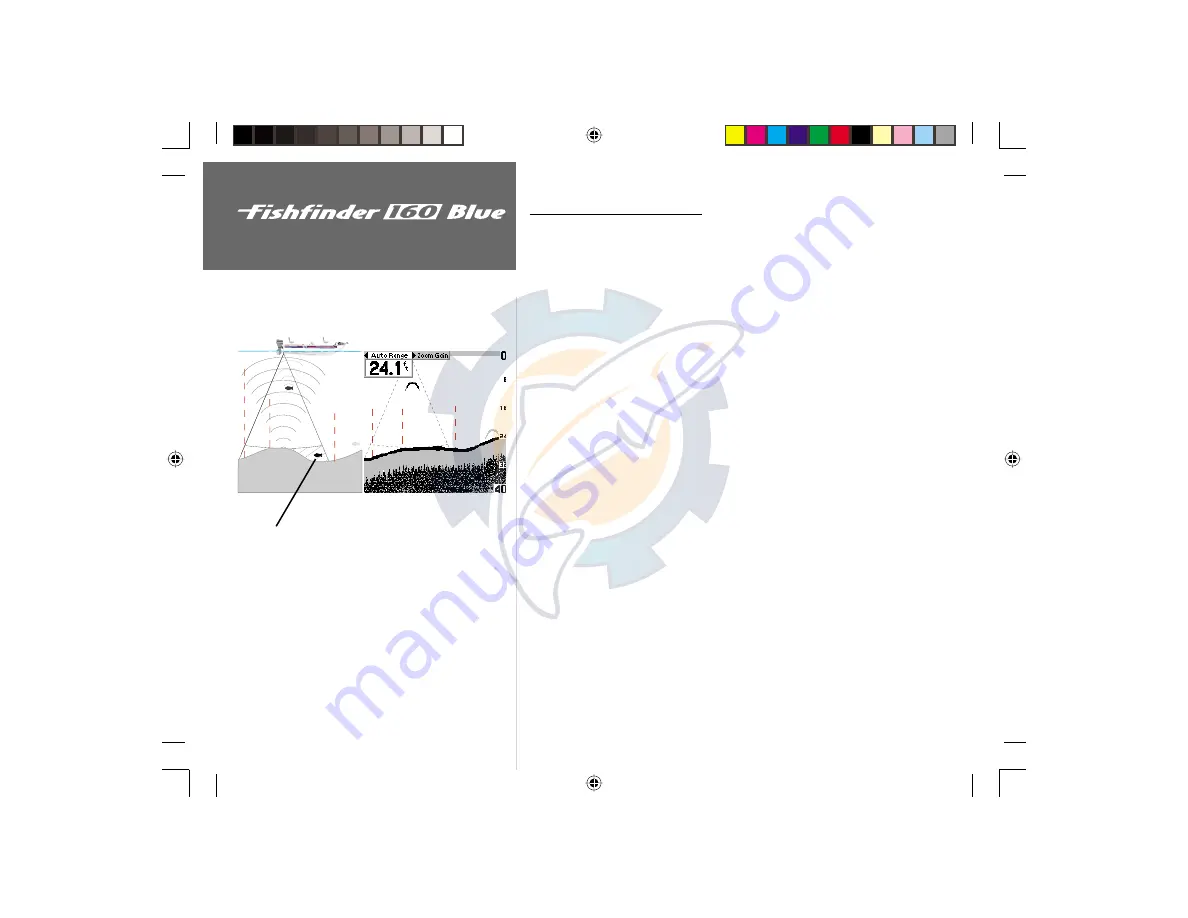
30
On the Water
On the Water
1
1
2
2
3
3
If you are unfamiliar with sonar, or need help determining what is
displayed on the chart, then this section may be for you. This section
is intended to help the novice user gain some understanding of how the
Fishfinder 160 Blue operates and how it can help improve their fishing
productivity.
To understand what the unit is displaying, it is important to have a
general knowledge of how the unit works and how it determines what to
display. Briefly described, the unit operates by transmitting sound waves
toward the bottom of a lake, stream or seabed in a cone–shaped pattern.
When a transmitted sound wave strikes an underwater object such as the
bottom, a piece of structure, or a fish, sound is reflected back to the
transducer. The transducer collects the reflected sound waves and sends the
data to the unit to be processed and displayed on the chart. Underwater
data is displayed on the chart in the order that the reflected sound waves
are received. The diagram in the sidebar demonstrates this, showing an
underwater scene as it would be displayed on the chart. Generally speaking,
if the only thing between the transducer and a flat bottom is water, the
first strong return will come from the bottom directly below the transducer,
this return will set the bottom level. Weaker secondary returns provide
the detailed data. Stronger returns will display in darker colors, with black
being the strongest return. In Examples 1 and 2 (page 32), you can see
that the branches and the fish were the strongest secondary returns and are
indicated in black on the display.
That is a brief description of how your Fishfinder operates. Let’s take a
look at how this data can help you to improve your fishing.
Unit Operation and the Chart
This fi sh is currently in a Dead Zone and is not detected
by the sonar. The fi sh is in the coverage area of the
transducer, but remember the fi rst strong return sets the
bottom level. The fi sh will never be detected since the
bottom level will never be set below the fi sh. The fi sh on
the right side of the display (shown in light grey) will be
detected and displayed when the transducer cone passes
over the fi sh.
FF 160 B Rev B.indd
12/13/01, 2:50 PM
30

